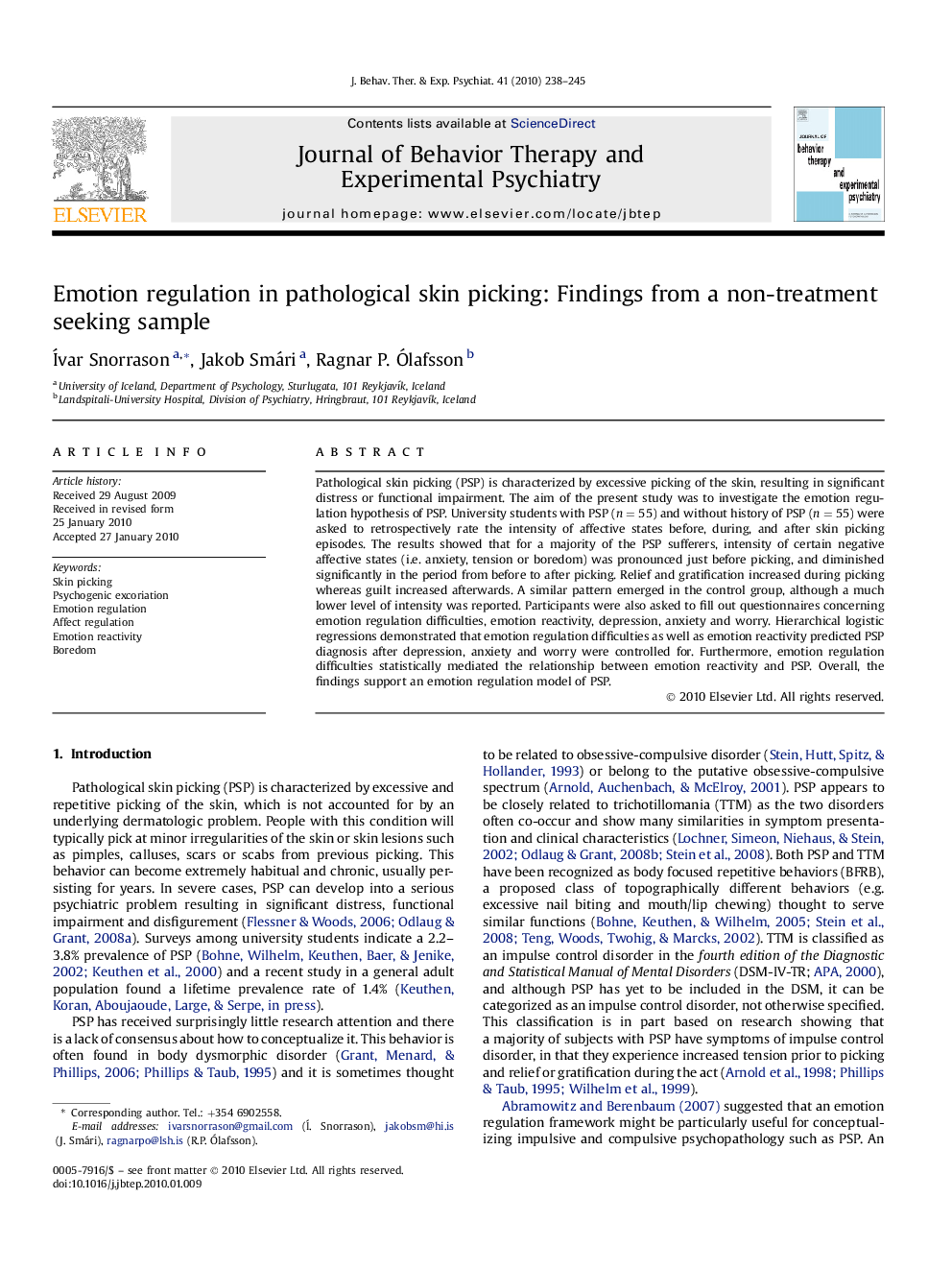| Article ID | Journal | Published Year | Pages | File Type |
|---|---|---|---|---|
| 910512 | Journal of Behavior Therapy and Experimental Psychiatry | 2010 | 8 Pages |
Pathological skin picking (PSP) is characterized by excessive picking of the skin, resulting in significant distress or functional impairment. The aim of the present study was to investigate the emotion regulation hypothesis of PSP. University students with PSP (n = 55) and without history of PSP (n = 55) were asked to retrospectively rate the intensity of affective states before, during, and after skin picking episodes. The results showed that for a majority of the PSP sufferers, intensity of certain negative affective states (i.e. anxiety, tension or boredom) was pronounced just before picking, and diminished significantly in the period from before to after picking. Relief and gratification increased during picking whereas guilt increased afterwards. A similar pattern emerged in the control group, although a much lower level of intensity was reported. Participants were also asked to fill out questionnaires concerning emotion regulation difficulties, emotion reactivity, depression, anxiety and worry. Hierarchical logistic regressions demonstrated that emotion regulation difficulties as well as emotion reactivity predicted PSP diagnosis after depression, anxiety and worry were controlled for. Furthermore, emotion regulation difficulties statistically mediated the relationship between emotion reactivity and PSP. Overall, the findings support an emotion regulation model of PSP.
